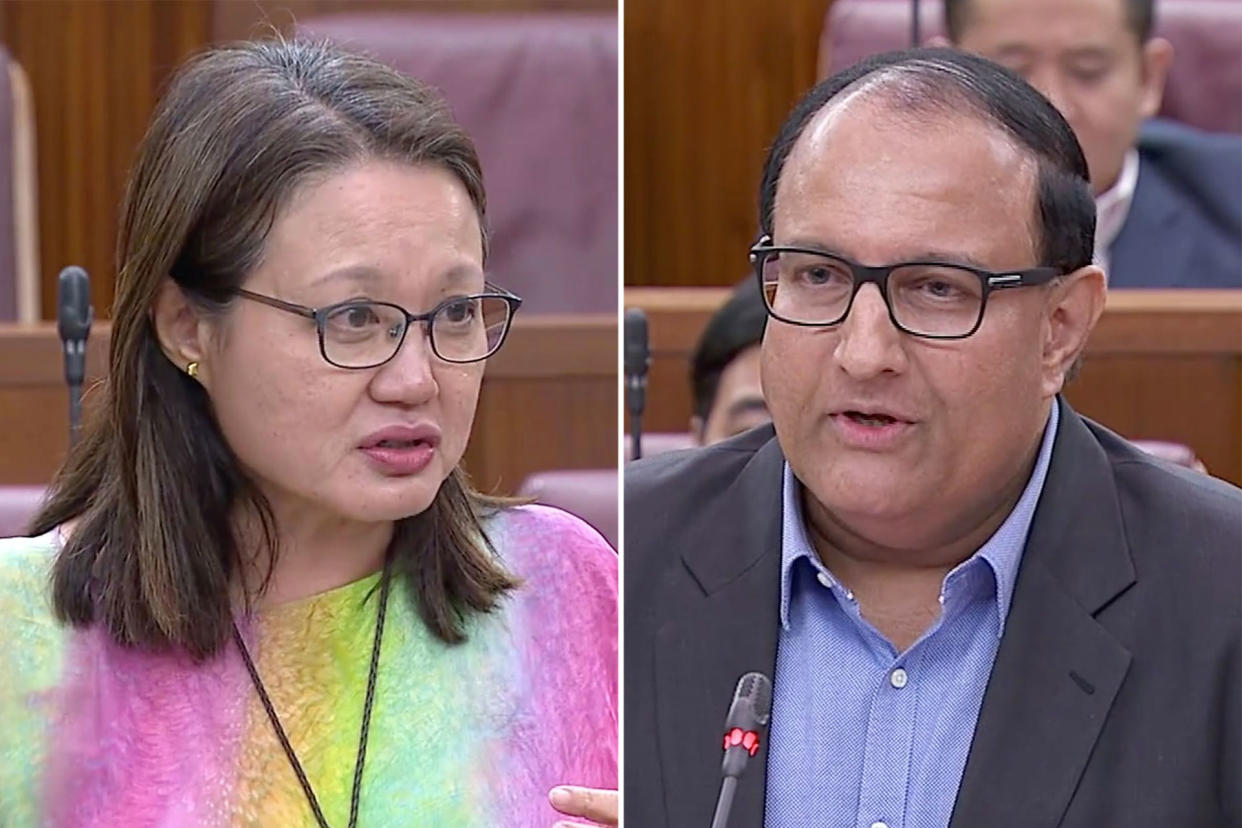Sylvia Lim 'may be barking up the wrong tree' regarding POFMA rules on political advertising: Iswaran

SINGAPORE — Workers’ Party (WP) chairman Sylvia Lim “may be barking up the wrong tree” in expressing concern that certain rules concerning online political advertisements will allow the ruling political party a strategic advantage over its political opponents, said Minister for Communications and Information S Iswaran in Parliament on Monday (6 January).
Lim had raised queries regarding the Code of Practice for Transparency of Online Political Advertisements, specifically with regard to the requirements imposed on prescribed intermediaries – such as social media platforms – that carry such advertising.
The Code, which was issued by the Protection from Online Falsehoods and Manipulation Act (POFMA) Office on 2 October last year, requires intermediaries carrying online political ads to display notices disclosing the person or organisation that paid for them and to maintain a database of the ads – which includes information such as the ads’ intended target audience and number of viewers reached.
“There is nothing to stop the POFMA Office from going back at any time to look at (an intermediary’s records), even if an advert has no problems. And, in that sense, it is a good way to discover the election strategy of the political opponents of the ruling party,” said Lim.
Quipping that Lim had a “very active imagination”, Iswaran responded by pointing out how popular social media platforms had already taken action against political advertising.
“If you want to take out political advertising through the English social media platforms, Google is not taking them. Twitter is not taking them... Facebook is making full disclosure. More than the disclosure that we require through this code,” he observed.
“So I’m not sure how this affords us greater intelligence,” Iswaran added.
In explaining the rationale for having the Code, the minister also noted how digital advertising tools are widely used on social media platforms and how ads can be “micro-targeted at specific groups using a variety of indicators”.
“We believe that Singaporeans should know, and indeed that our citizens would want to know, who is behind the political advertisements that they see online,” he said, adding that the Code was also aimed at enhancing the transparency of online political advertising and holding advertisers accountable.
Regarding the obligation for intermediaries to maintain a database of political ads, Iswaran said this pertains to such groups being required to keep the information.
“It doesn't mean that the (POFMA Office) has to have access to this information but the information must be available, so that in the event action is required, the relevant information is available,” he added.
Related story:
Coincidence that fake news law applied to politicians, Singapore minister says



